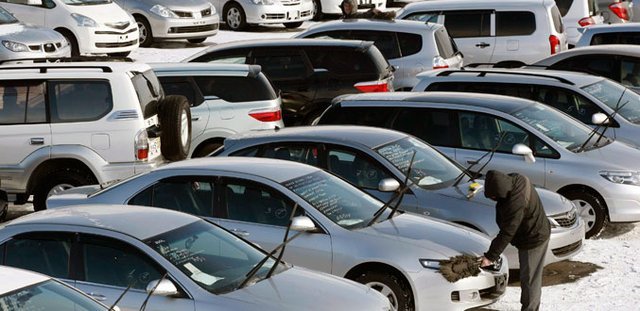Reconditioned vehicles: meeting between importers and Xavier Duval Wednesday

A meeting is scheduled on Wednesday, March 30 between the importers of second hand vehicles from Japan and the Deputy Prime Minister Xavier Luc Duval. The meeting aims to clarify some points on the decision of the State to control the importation of these vehicles after the earthquake that struck the country Friday, March 11, which triggered a tsunami and a nuclear power plant accident Fukushima-Daiichi.
The Council of Ministers had decided to ban the import of such vehicles Friday, March 25, before turning back the following Monday after the ministerial committee chaired by Deputy Prime Minister and Minister for Social Integration, Xavier-Luc Duval.
This infuriates the highest point of the President of Imported Vehicles Dealers Association (DIVA), Zaid Ameer. "It` is a cacophony!". He also complained that about 55 vehicles were still stuck at customs because of this situation.
It`s acts of vehicles shipped from Japan before Friday, March 11, before the nuclear accident. While these cars are not affected by seawater or by radioactivity, the authorities decided to keep them under seal. According to Zaid Ameer, importers will reimburse customers who had placed orders.
Another question hangs over the chair of the DIVA. It covers vehicles imported from Japan after Friday, March 11."How do I know if they are contaminated or not?And what is the evidence that they don `t have been damaged by the water of sea," Zaid Ameer request.
"To protect future owners, we require documentation certifying that the vehicles are not affected," said Zaid Ameer. The latter is worried and wondered if Maurice has the necessary equipment to measure radioactivity. "And if we do not control it as quickly as possible," says he.
For individuals who have decided to import their vehicles directly from Japan, there are questions about control measures. Thus, Teelock Mrinal, the chairman of the Mauritius Vehicles Dealers Association (MVDA), the association of dealers of new vehicles, hoping that these vehicles will be subject to the same verification procedures. According to him, some people believe doing good business by taking advantage of this catastrophe to make real money, the second-hand Japanese cars are very popular in Mauritius.
Mrinal Teelock recalls the troubles encountered by customers, including the presence of mud and water from salt in vehicles imported some years ago in the aftermath of an earthquake in Kyoto. He hopes to make its voice heard to the authorities.


